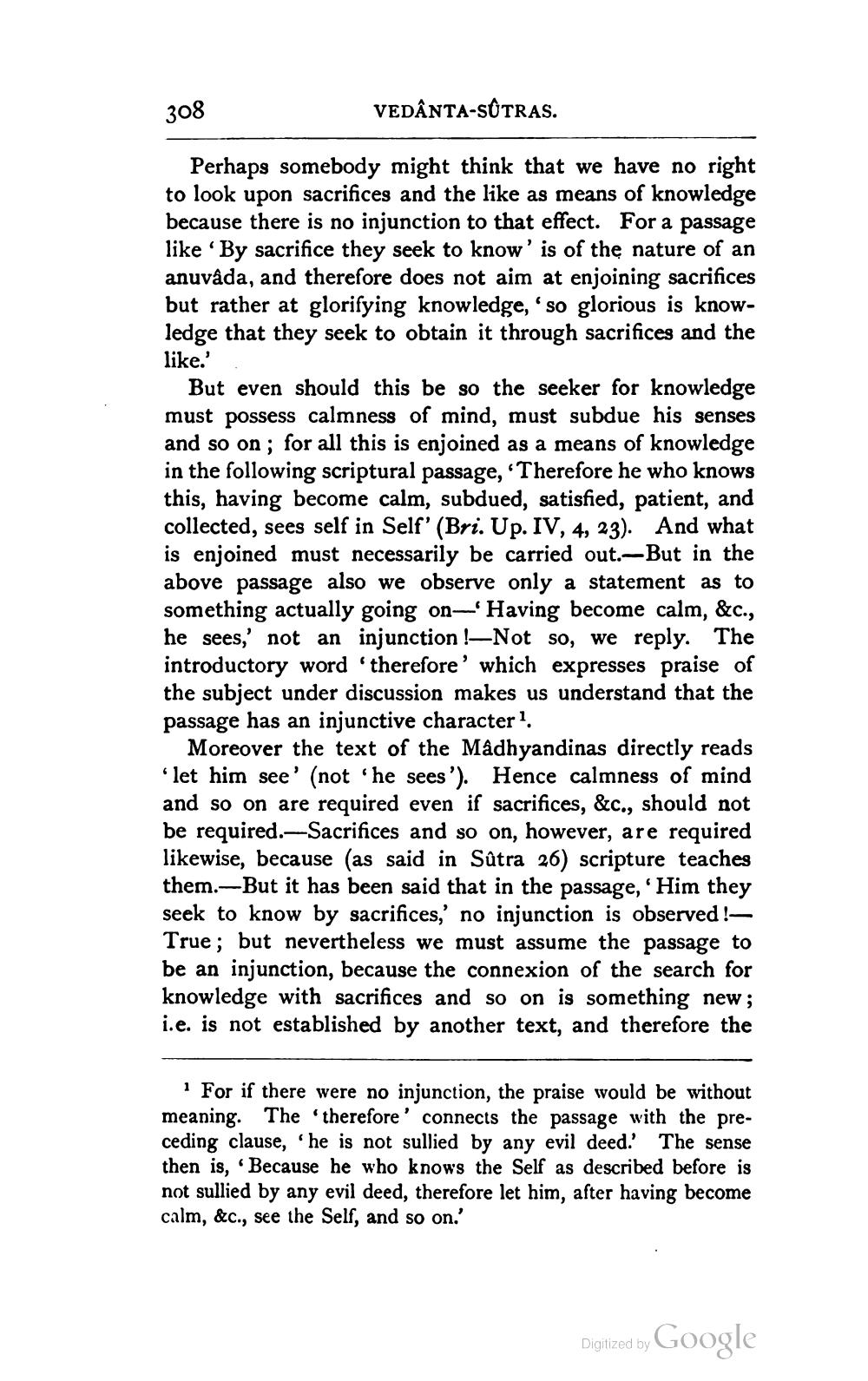________________
308
VEDANTA-SUTRAS.
Perhaps somebody might think that we have no right to look upon sacrifices and the like as means of knowledge because there is no injunction to that effect. For a passage like 'By sacrifice they seek to know' is of the nature of an anuvâda, and therefore does not aim at enjoining sacrifices but rather at glorifying knowledge, 'so glorious is knowledge that they seek to obtain it through sacrifices and the like.'
But even should this be so the seeker for knowledge must possess calmness of mind, must subdue his senses and so on; for all this is enjoined as a means of knowledge in the following scriptural passage, 'Therefore he who knows this, having become calm, subdued, satisfied, patient, and collected, sees self in Self' (Bri. Up. IV, 4, 23). And what is enjoined must necessarily be carried out.-But in the above passage also we observe only a statement as to something actually going on-'Having become calm, &c., he sees,' not an injunction!-Not so, we reply. The introductory word 'therefore' which expresses praise of the subject under discussion makes us understand that the passage has an injunctive character1.
Moreover the text of the Mâdhyandinas directly reads 'let him see' (not 'he sees'). Hence calmness of mind and so on are required even if sacrifices, &c., should not be required.—Sacrifices and so on, however, are required likewise, because (as said in Sûtra 26) scripture teaches them. But it has been said that in the passage,' Him they seek to know by sacrifices,' no injunction is observed!True; but nevertheless we must assume the passage to be an injunction, because the connexion of the search for knowledge with sacrifices and so on is something new; i.e. is not established by another text, and therefore the
For if there were no injunction, the praise would be without meaning. The 'therefore connects the passage with the preceding clause, he is not sullied by any evil deed.' The sense then is, 'Because he who knows the Self as described before is not sullied by any evil deed, therefore let him, after having become calm, &c., see the Self, and so on.'
Digitized by Google




